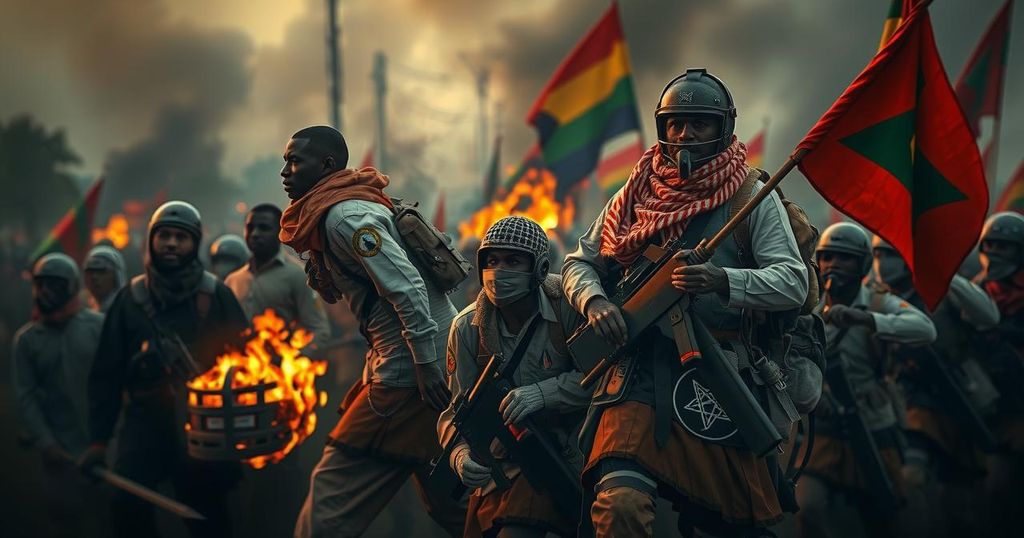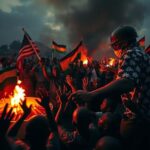Is Sudan on the Brink of a Long-Term Civil War?
Sudan’s civil war continues with no resolution in sight after 19 months, amidst severe humanitarian crises. The SAF has regained territory against the RSF, leading to heightened ethnic tensions and fears of prolonged conflict. Diplomacy remains stymied by bias and violence, deepening concerns about a potential comprehensive civil war.
Sudan remains engulfed in an ongoing civil war, characterized by fierce fighting between the Sudanese Armed Forces (SAF) and the Rapid Support Forces (RSF). The conflict has caused significant humanitarian crises, including mass displacements and starvation on a severe scale. The military dynamics shifted recently, with the SAF regaining ground, notably in Khartoum, while the RSF struggles with isolation and a series of defections, which signal its weakening position. Furthermore, ethnic tensions are on the rise as the SAF bolsters its forces through tribe mobilizations, raising concerns of a shift towards a more prolonged civil conflict. This situation has drawn caution from political groups fearing that Sudan is on a path to a comprehensive civil war, exacerbated by retaliatory tactics from the RSF and a continued lack of effective international intervention. The SAF has been criticized for its inability to protect civilians, despite presenting itself as a more ethical alternative in the conflict. An enduring solution seems impeded by failures in diplomatic efforts, particularly as external entities involved in the conflict exhibit biases that hinder peace negotiations. The situation in Sudan remains dire with prospects for resolution dwindling, as new forms of violence seem imminent.
The civil war in Sudan has persisted for 19 months, predominantly characterized by the conflict between the SAF and the RSF. This enduring struggle has resulted in devastating humanitarian outcomes, including the world’s largest displacement crisis. Following military advances by the SAF, there has been a notable shift in territory control and the momentum of the conflict, intensifying fears of escalated ethnic and tribal warfare. Recent defections from the RSF signal internal vulnerabilities, while the SAF’s recruitment strategies raise alarms about the potential for long-term impacts on Sudan’s sociopolitical landscape. The international response has been insufficient, and sanctions on RSF leaders reflect the complex geopolitical dynamics at play, complicating peace efforts.
In summary, Sudan’s civil war appears to be poised for a prolonged and potentially more violent phase, as shifting military dynamics favor the SAF amid a series of challenges confronting the RSF. The rising ethnic tensions, combined with continuing humanitarian crises and ineffective international interventions, lend credence to fears of a comprehensive civil war. A viable diplomatic resolution seems increasingly elusive as external and internal factors contribute to a deepening conflict, underscoring the urgent need for renewed focus on peace initiatives.
Original Source: www.newarab.com








Post Comment